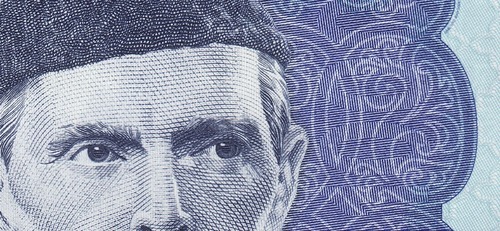The post-election euphoria at the end of the lean first month (July) of the financial year, bilateral inflows, a pick-up in remittances, deferred payment arrangements to stall a drawdown on reserves and a viable contingency plan by the caretaker government to deal with the insolvency risk combined to perk up currency and capital markets over the past week.
Business circles are cautiously optimistic as they believe that the incoming Pakistan Tehreek-i-Insaf (PTI) government commands sufficient political capital to make corrections where necessary and continue the forward thrust of the economy.
Examine: Imran Khan and the IMF: Pakistan's bailout dilemma
“The victory speech of PTI Chairman Imran Khan was well received in the community. The real test, however, will start as soon as he forms the government. It all depends on how well his team of economic managers is able to use the initial honeymoon period of his government to set the tone,” Amin Hashwani, an articulate businessman with diversified interests, commented.
“The structural reforms that the economy needs may not necessarily be popular, but the new government should do all it takes to put the economy on a sustainable growth path as soon as possible,” he said, making a case for a consensus minimum economic programme.
Deft management of the external sector and a check on public spending did not allow the economy to slip in a difficult transitional phase
He said people should not read too much into the recent remarks by US Secretary of State Mike Pompeo in which he advised the International Monetary Fund (IMF) against lending money to Pakistan to settle Chinese loan repayments. The statement, he said, was in response to a question. “I think the question was framed with ill intent,” he asserted.
Other leaders were happy with the conduct of the caretaker setup during the interim period.
In their view, the deft management of the external sector and a close check on public spending did not allow the economy to slip in a difficult transitional phase. The general state of the economy in terms of both tangible factors and perception is about the same, if not significantly better, as it was at the exit of the PML-N government on May 31.
The volatility in the currency market over the last fortnight was termed a reflection of divergent factors playing out on the demand and supply situation of hard currency in the market.
“I am happy that the caretaker government delivered on its mandate on both political and economic fronts. Flaws in the election process must be probed and concerns of the participants addressed, but the fact that the elections were held on time is not a mean achievement in itself.
“No one expected wonders from a government of limited mandate on the economic front, but a close watch on the fundamentals and prudent management of the economy over the past two months will serve the incoming government well,” a source privy to top forums told Dawn on condition of anonymity.
Sharing details about the negotiations on the Financial Action Task Force (FATF) at the Pakistan Stock Exchange (PSX) before the elections, Finance Minister Dr Shamshad Akhtar did mention getting a better deal in terms of permissible compliance time and a list of milder conditions to qualify out of grey-listing.
“We did manage in the end to move the FATF team in Paris from their inflexible stance on Pakistan. The compliance time was extended from three to six months and the list of mandatory conditions reduced to 22 from 40 that were originally proposed in the deal,” she said in her speech on the state of the economy that, according to her, was on an upward growth trajectory.
Kaiser Waheed, a leader of the pharmaceutical sector, was not convinced. He was critical of abrupt changes in the import regime and the recent conditions that the State Bank of Pakistan (SBP) imposed on importers. “We are facing liquidity issues as banks are not ready to lend us support that they used to offer earlier on letters of credit. Ask any company that depends on imported raw material and it will speak about the same unending ordeal. We are hoping against hope that the incoming government will turn the situation in our favour,” he said.
Commenting on the state of the economy, he said he was particularly concerned about inflationary pressures. “Mark my words. Price stability will be impossible to maintain in this environment. The economy that is showing the early signs of heating up will push up inflation,” he said.
PML-N leader Mohammad Zubair, who once headed the Privatisation Commission and the Board of Investment and recently resigned as Sindh governor, gave a nuanced view on the recent market volatility.
“The market is celebrating the return of stability as the election process ended and the stage is set for the next government to assume power peacefully. The picture is a lot clearer than it was a month back. Businesses abhor uncertainty. We have our very strong reservations on the outcome of the elections and we will fight it out on all relevant forums within the democratic ambit,” he said.
“There can be some movement to and fro, but it will take nothing less than a disaster to stop growth. We have covered a long distance since 2008. The PPP-led government (2008-13) set the legal-political framework for progress through the 18th Amendment and the 7th National Finance Commission Award while infrastructure investment under the PML-N government (2013-18) removed the limits on growth. I don’t see why the PTI government will not build on these gains by strengthening institutions and encouraging capital formation. To me, this is democracy delivering in this country at long last,” commented an economist.
Published in Dawn, The Business and Finance Weekly, August 6th, 2018














































